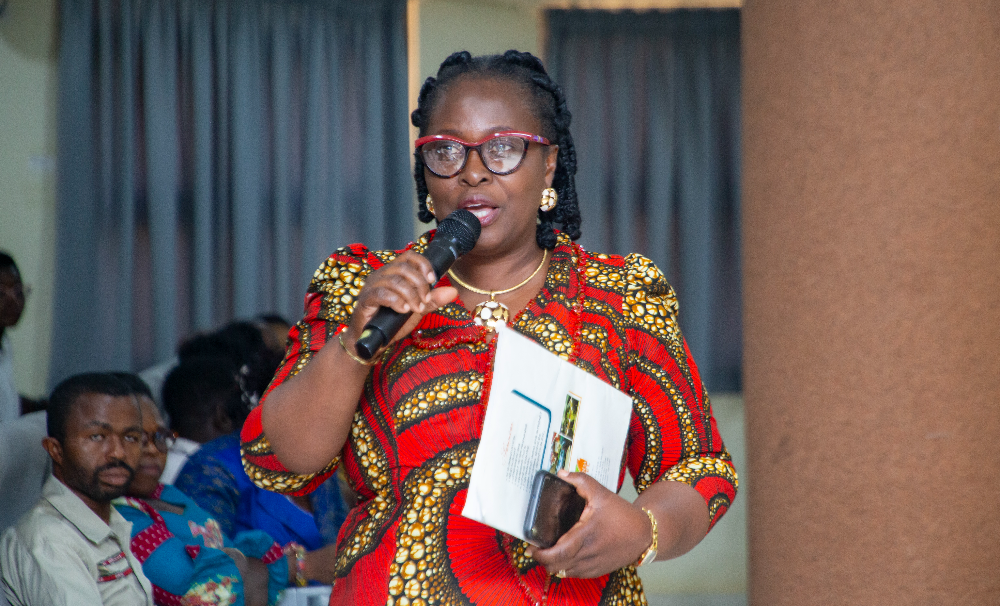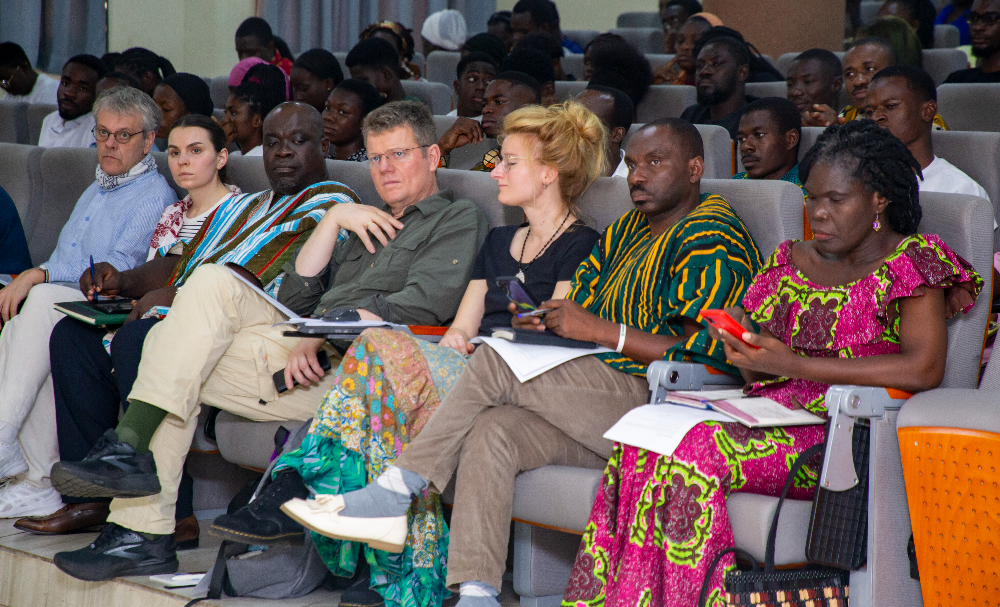The Department of Language and Communication Sciences at KNUST recently hosted its second special seminar series, focusing on the intersection of language, communication, and climate change.
The event brought together experts, researchers, and students to explore how climate change is reshaping linguistic expression and the need for interdisciplinary collaboration.
Key discussions highlighted the emergence of new vocabulary to describe environmental shifts, the role of language in disaster documentation, and the importance of global approaches to water management.
The seminar aimed to inspire innovative research and sustainable academic growth in addressing the challenges of a changing climate.
The event is in collaboration with the Department of Geography & Rural Development and the KNUST/RWTH University Bridge project.
The Provost of the College of Humanities and Social Sciences, Professor Charles Ofosu Marfo, highlighted the seminar as a crucial platform for discussing pedagogy, climate change, and teaching.
He encouraged participants to share their thoughts, ask questions, and engage in meaningful dialogues, noting that the discussions would help shape future research.

Dr. Mrs. Faleke Victoria, Head of the Department of Language and Communication Sciences, emphasized the interdisciplinary nature of language and its profound connection to geography, climate science, and communication.
"Climate change is altering not just our environment but also how we describe it. Where it once snowed, it now rains; where it used to be cold, it is now hot. People are using new lexical items to express these changes," she explained.
She expressed optimism that the discussions would spark further research initiatives and ensure sustainable academic growth in the department.

Dr. Bruno Arich-Gerz from RWTH Aachen University, Germany, in his presentation, examined the relationship between water, language, and climate change. Introducing the concept of hydro-linguistics, he explored how different cultures and languages conceptualize water and advocated for a global, interdisciplinary approach to water management.
Ms. Giulia Fanton discussed the importance of documenting floods and disasters. She presented findings from research conducted on the experiences and long-term effects of the July 2021 floods in Western Germany. The project, developed in collaboration with local museums and researchers, captures eyewitness testimonies, images, and videos to preserve the memories of those affected.
According to her, documentation not only serves as historical evidence but also plays a crucial role in research and disaster prevention.

